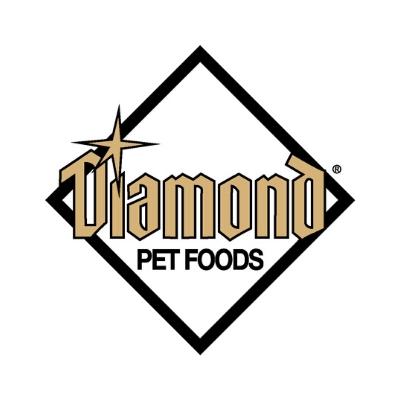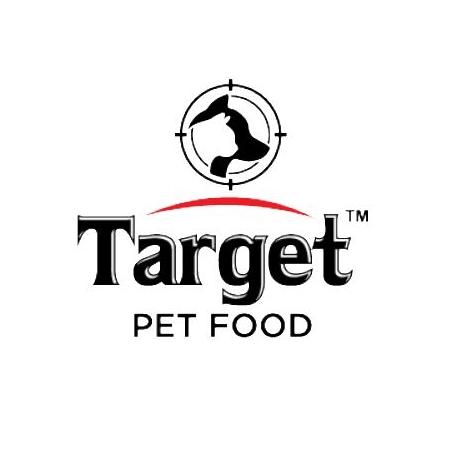Dog Prostate Cancer
Introduction
Prostatic neoplasia, also called prostate cancer, is an uncommon but extremely serious disease that occurs in both neutered and intact male dogs. Prostate tumors are highly invasive, space-occupying masses that typically have metastasized by the time they are diagnosed.
The prostate is a lobed gland in male dogs located at the junction of the bladder and the urethra. It contributes a liquid component to seminal fluid. The prostate gland increases in size and weight as a male dog ages. This is normal. The primary prostate problems in dogs are benign prostatic hyperplasia (BPH), prostatic cysts, bacterial prostate infection, inflamed prostate (prostatitis), prostatic absceses and cancer (neoplasia). Of these, BPH and prostatitis are the most common in domestic dogs. While less common, prostate cancer is among the most serious of all prostate disorders in dogs.
Causes & Prevention
Causes of Canine Prostate Cancer
The most common type of prostate cancer in dogs is adenocarcinoma, which predominates in intact males or dogs that were recently neutered. Other tumor types include undifferentiated carcinoma, fibrosarcoma, leiomyosarcoma and squamous cell carcinoma; these tend to be more common in neutered dogs. Regardless of type, prostate tumors are aggressive. They typically invade surrounding tissue and are highly metastatic, commonly spreading to bone in the spine and/or pelvis and to nearby (regional) lymph nodes. They also often metastasize to the lungs.
Prevention
There is no known way to prevent prostate cancer. Because prostatic tumors are not influenced by testosterone, castration does not reduce the risk of this disease or slow its progression.
Special Notes
Surgical resection is the only viable "cure" for prostate cancer. However, since the cancer usually has metastasized by the time it is diagnosed, surgical rarely is a curative option. Radiation and chemotherapy can be used to help minimize the effects of prostate disease and to help affected dogs live as comfortably as possible for the duration of their lives. Dogs that develop clinical signs associated with prostate cancer have a guarded to grave prognosis.
Symptoms & Signs
Introduction
Prostate cancer can affect male dogs of all breeds and ages, whether intact or neutered, although it normally is diagnosed in older dogs. Signs of prostate cancer often mimic the signs of other prostatic disorders, such as benign prostatic hypertrophy, prostate abscesses or prostatitis.
Symptoms of Prostate Cancer
The symptoms of prostate cancer usually develop gradually. Owners of affected dogs may notice none, one or more of the following symptoms:
Frequent attempts to urinate
Urination in abnormally small amounts
Incontinence
Straining to urinate (stranguria; caused by compression of the bladder by the mass)
Difficulty urinating (dysuria)
Blood in the urine (hematuria)
Straining to defecate (tenesmus; caused by compression of the colon by the mass)
Constipation
Scooting
Periodic watery, bloody discharge from the penis (serosanguinous discharge)
As the disease progresses, the dog may develop one or more of the following signs:
Rear end lameness or other motor abnormalities (caused by metastasis of the cancer to bone)
Increasing signs of pain
Lethargy
Loss of interest in playing, going for car rides or participating in other normal activities
Loss of appetite (inappetance; anorexia)
Weight loss (often dramatic)
Fever (usually fluctuating)
Holding the tail in an unusual position (due to localized discomfort)
Dogs with prostate cancer can exhibit one, some, all or none of these symptoms at varying stages of their disease. Ultimately, most prostate tumors will metastasize to distant locations, with or without treatment. If an older male dog exhibits any of these signs, his owner should consult with a veterinarian at the earliest opportunity.
Dogs at Increased Risk
Prostate cancer can occur in neutered or intact male dogs of any age. It typically occurs in older dogs, on average at about 10 years of age, depending upon breed. Large and giant breed dogs normally have a shorter life expectancy than do smaller dogs. As a result, they tend to develop prostate cancer earlier than other dogs. There is no recognized breed predisposition to development of prostate cancer. However, middle-sized, large and giant breeds seem to be more commonly affected.
Diagnosis & Tests
Introduction
As male dogs age, they are increasingly prone to developing disorders of the prostate gland. Unfortunately, prostate cancer is one of them. Prostate tumors are space-occupying masses that cause the prostate gland to become enlarged, and they almost always spread to distant locations before they are diagnosed. Most cases are diagnosed when an owner consults with a veterinarian because his dog seems to be having difficulty urinating and/or defecating.
How Canine Prostate Cancer is Diagnosed
Veterinarians usually perform abdominal and rectal palpation during a routine physical examination, particularly if their patient is an older male dog whose owner mentions signs of urinary difficulty. During the rectal examination, the veterinarian will palpate (feel) the prostate gland to assess its size, texture and contours. In cases of prostate cancer, the veterinarian usually will feel a large, asymmetrical, irregular and painful prostate gland. She also may find a palpable mass in the abdomen. Depending upon the results of the initial history and physical examination, further diagnostic tests may be appropriate.
The initial data base usually includes a complete blood count, serum chemistry profile, urinalysis and urine culture, as the symptoms of prostate cancer can mimic those of a urinary tract infection or kidney disease. Another common test is an ultrasound of the prostate gland. This is the preferred method for assessing the general health of the prostate, as it can help the veterinarian identify and distinguish between prostatic cysts, abscesses and tumors. A fine needle aspirate of cells from the prostate gland can be done with ultrasound guidance, which also can help distinguish between benign prostatic hypertrophy (BPH), prostatitis, abscesses and cancer. However, taking a direct sample of prostate tissue can cause seeding of surrounding tissues with bacteria, if the source of the dog's discomfort is a bacterial infection or abscess. It also can cause seeding of cancer cells, although the need to determine whether a dog has prostate cancer usually outweighs the risk of tumor seeding.
Thoracic (chest) and abdominal radiographs (X-rays), as well as abdominal ultrasound, can be useful to look for signs of metastasis. Regional lymph nodes can be sampled by fine needle aspiration, or removed entirely, and examined microscopically for the same purpose.
Biopsy of the prostate, with subsequent microscopic (histopathologic) evaluation of the tissue samples, is the only definitive way to diagnose prostate cancer. A biopsy involves removing and examining tissue from a living body. It differs from a fine needle aspirate in that it involves taking actual pieces of tissue, not just cells or fluid, as the samples. Biopsy of the prostate will enable the veterinary pathologist not only to diagnose the existence (or absence) of cancer, but also to identify what type of cancer, if any, is involved.
Semen sampling and assessment may also be used when prostatic disease is suspected. This will not be diagnostic of cancer but can help to rule in or out certain other causes of the dog's clinical symptoms. Computed tomography (a CT or CAT scan) can be used to help plan the best course of surgical treatment or other therapy.
Special Notes
Most prostate tumors are locally advanced and have metastasized by the time they are diagnosed (more than 80% in some reports). Ultimately, almost all will metastasize if left untreated.
Treatment Options
Introduction
Prostate cancer is an extremely serious disease in domestic dogs. Unless caught very early, it almost certainly will become locally invasive and will spread to distant locations as well. The primary goal of therapy is to eliminate or at least reduce the chance of progressive metastatic disease by surgically removing the prostate gland. Unfortunately, in almost all cases, the cancer has spread by the time it is diagnosed. If surgical correction is not a viable option, palliative treatments are available to provide relief from the symptoms that accompany prostate cancer, and to thereby help affected dogs live as comfortably as possible for the duration of their lives.
Treatment Options
Surgical resection of all cancerous tissue is the only way to cure prostate cancer. This is only possible if the cancer has not metastasized. If surgical removal is not possible, radiation and chemotherapy can be used to help minimize the adverse effects of the disease.
Surgical options include partial or complete prostatectomy (removal of part or all of the prostate gland). This procedure may or may not preserve the urethra, depending upon its involvement. The urethra is the anatomical tubular passageway between the bladder and the outside world, through which urine is excreted. In male dogs, the urethra also is the passageway for discharge of reproductive secretions. If the urethra is severed or removed, a cystostomy tube must be placed so that the dog can urinate. Because prostate cancer is so highly metastatic, most veterinarians recommend chemotherapy and/or radiation therapy as adjuncts to surgery.
"Palliative" means providing relief. Palliative therapeutic options are available for dogs whose prostate cancer has spread, as well as for dogs with local infiltration of cancerous tissue that for whatever reason is not suitable for surgical removal. The primary goals of palliative treatment for prostate cancer are to relieve pain and to preserve the patency (openness) of the patient's urethra.
One form of palliative therapy is chemotherapy – which is the use of drugs to treat disease. Chemotherapy has proven to be effective in treating many types of cancer in dogs. It is, however, expensive and may only be offered by veterinary oncologists in specialized treatment centers and veterinary teaching hospitals that are not easily accessible to all owners.
Another form of palliative therapy is the use of radiation, either in addition to or instead of chemotherapy or surgery. Radiation usually is administered in small doses over several weeks.
Prognosis
Canine prostate cancer is extremely aggressive. Even after treatment, affected dogs should be monitored regularly by a veterinarian for signs of metastasis. Unfortunately, because this disease is so prone to spreading both locally and afar, dogs with clinical signs caused by prostate cancer have a guarded to grave prognosis. Medical management may help to prolong a dog's quality of life. However, euthanasia is a realistic consideration for owners of dogs with prostate cancer, especially once it has metastasized. Only a veterinarian, in consultation with the owner, can determine the best course of treatment for these dogs.
















































